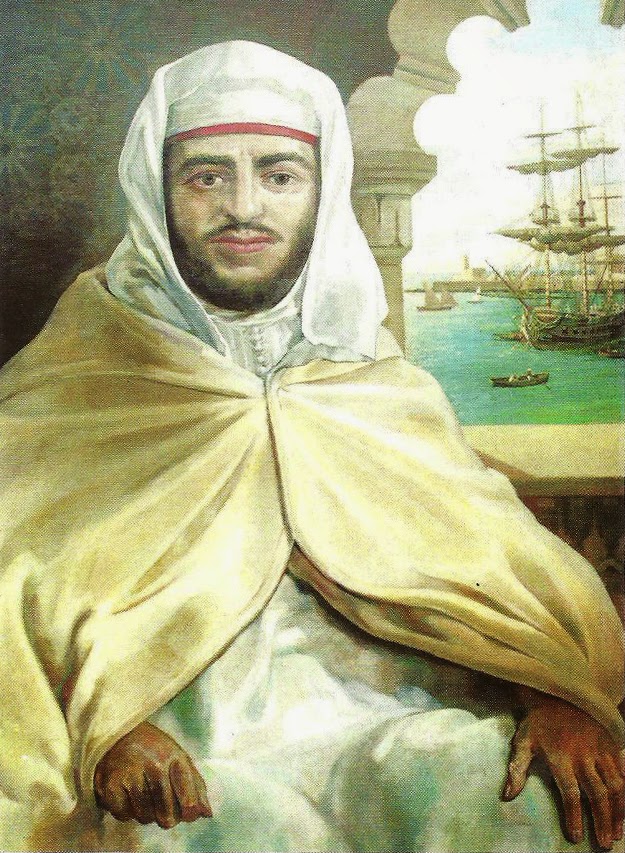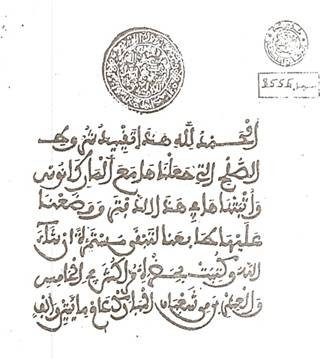Yabladi.com
Sultan Mohammed III issued a declaration to establish diplomatic relations with the USA./Ph. DR.
On December 1777, Sultan Sidi Mohammed Ben Abdullah, has been trying to seek diplomatic relations with the American Republic that has recently declared its independence in 1776.
As part of a very well studied step, the Sultan announced his desire to befriend the USA. His request, as indicated by the U.S Embassy and Consulate in Morocco website, was an endeavor to strengthen the country’s economy through maritime trade.
The Emperor, back in the time «wanted to establish state-controlled maritime trade as a new, more reliable, and regular source of income which would free him from dependency on the services of the standing army», the same source recalls.
Morocco as a first step opened its ports for American ships allowing them to freely navigate alongside the other vessels coming from countries that signed treaties with the kingdom, such as Russia, Malta, Sardinia, Germany and other European nations. The declaration issued by the Sultan made Morocco the first country to acknowledge the legitimacy of the USA as a republic with which trade and diplomatic relations should be maintained.
The Sultan’s Letters
However, American officials, led by Benjamin Franklin did not respond to the Moroccan request. One year later following the first declaration, Sultan Mohammed III, reissued another statement which was «belatedly learned». «The February 20 declaration was again sent to all consuls and merchants in the ports of Tangier, Sale, and Mogador informing them the Sultan had opened his ports to Americans and nine other European States», said the article.
The sultan’s will to put efforts into attracting the Americans did not stop right there. In 1778, Mohammed III named Etienne d’Audibert Caille, a French Merchant of Sale, a Consul for all the nations unrepresented in Morocco. Caille was occupied with the task of writing to the Americans and let them know formally that the Sultan is ready to sign a trade treaty to ensure their diplomatic ties. Unlike expectations, Caille’s attempts were met by negligence, as Benjamin Franklin did not trust him.
The Congress finally responding
The new consul wrote on the behalf of the Sultan to Franklin in 1779 and to the congress during the same year as well as to the American Representative in Madrid. All these letters fell on deaf ears, until 1780 when the American congress finally replied to the Moroccan request through a letter that said :
«We the Congress of the 13 United States of North America, have been informed of your Majesty’s favorable regard to the interests of the people we represent, which has been communicated by Monsieur Etienne d’Audibert Caille of Sale, Consul of Foreign nations unrepresented in your Majesty’s states. We assure you of our earnest desire to cultivate a sincere and firm peace and friendship with your Majesty and to make it lasting to all posterity. Should any of the subjects of our states come within the ports of your Majesty’s territories, we flatter ourselves they will receive the benefit of your protection and benevolence. You may assure yourself of every protection and assistance to your subjects from the people of these states whenever and wherever they may have it in their power. We pray your Majesty may enjoy long life and uninterrupted prosperity.»
After receiving the Congress letter the Sultan waited for two years while American ships were granted the same status given to the other European trade vessels entering the Kingdom’s ports. On May the 7th 1784, the «congress authorized its Ministers in Paris, Franklin, Jay, and Adams, to conclude treaties of amity and commerce with Russia, Austria, Prussia, Denmark, Saxony, Hamburg, great Britain, Spain, Portugal, Genoa, Tuscany, Rome, Naples, Venice, Sardinia, and the Ottoman Porte as well as the Barbary States of Morocco, Algiers, Tunis, and Tripoli».
The Treaty of Friendship and Amity
Despite the courageous step taken by the congress, delays kept annoying the Sultan who decided to act differently. On October the 11th 1784, Mohammed III detained an American merchant ship named Betsey in Tangier and ordered the American government to sign a treaty in exchange of the Men, ship and cargo. Indeed, in 1785, a treaty between the USA and Morocco was under negotiation and the Sultan released the Bestey crew and shipment.
Following that, «on October 11, 1785, the commissioners appointed Thomas Barclay, American Consul in Paris, to negotiate a treaty with Morocco on the basis of a draft treaty drawn up by the commissioners, the source stated. A Treaty of Friendship and Amity was signed in Marrakech by the Sultan by on June 23rd and was shipped to Barklay who signed it equally on June 28th.
A different treaty was signed later on July the 6th 1786 in Marrakech to identify American and Moroccan vessels. It was later in 1797, the USA established a Consulate in Morocco after realizing the satisfactory results of the treaty first requested by Sultan Mohammed III.









